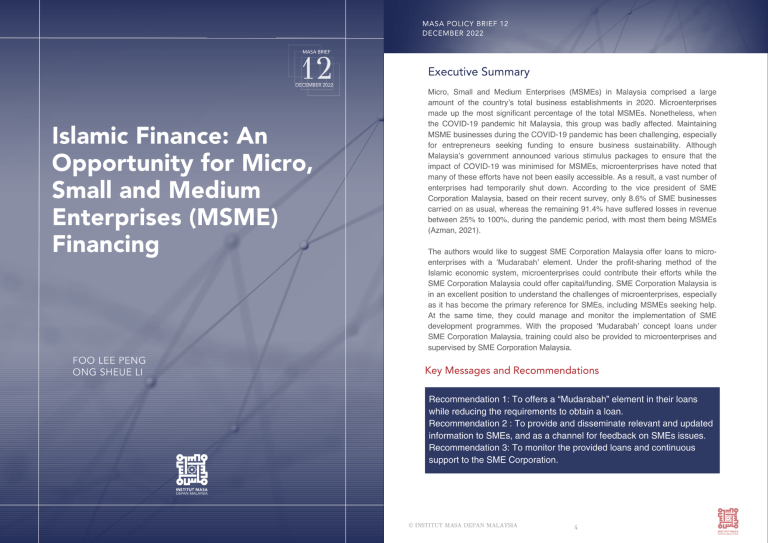Micro, Small and Medium Enterprises (MSMEs) in Malaysia comprised a large amount of the country’s total business establishments in 2020. Microenterprises made up the most significant percentage of the total MSMEs. Nonetheless, when the COVID-19 pandemic hit Malaysia, this group was badly affected. Maintaining MSME businesses during the COVID-19 pandemic has been challenging, especially for entrepreneurs seeking funding to ensure business sustainability. Although Malaysia’s government announced various stimulus packages to ensure that the impact of COVID-19 was minimised for MSMEs, microenterprises have noted that many of these efforts have not been easily accessible. As a result, a vast number of enterprises had temporarily shut down. According to the vice president of SME Corporation Malaysia, based on their recent survey, only 8.6% of SME businesses carried on as usual, whereas the remaining 91.4% have suffered losses in revenue between 25% to 100%, during the pandemic period, with most them being MSMEs (Azman, 2021).
The authors would like to suggest SME Corporation Malaysia offer loans to micro-enterprises with a ‘Mudarabah’ element. Under the profit-sharing method of the Islamic economic system, microenterprises could contribute their efforts while the SME Corporation Malaysia could offer capital/funding. SME Corporation Malaysia is in an excellent position to understand the challenges of microenterprises, especially as it has become the primary reference for SMEs, including MSMEs seeking help. At the same time, they could manage and monitor the implementation of SME development programmes. With the proposed ‘Mudarabah’ concept loans under SME Corporation Malaysia, training could also be provided to microenterprises and supervised by SME Corporation Malaysia.
